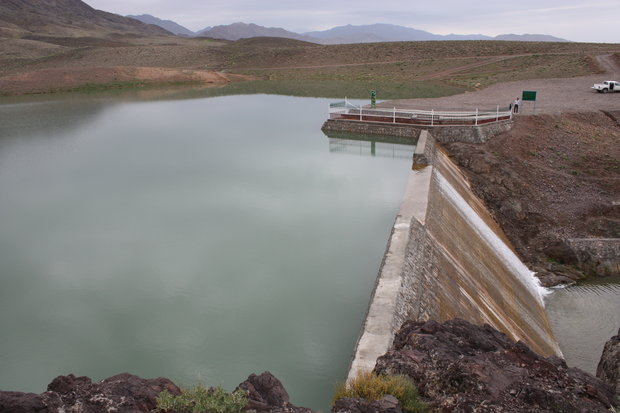The FAO Representative underscored that Iran itself has been experiencing major water challenges that have turned water security into a national priority at the moment and added: “population growth, climate change, increasing demand, and declining supply are among the factors increasingly adding pressure on water resources in the country".
On the occasion of commemoration of the first National Water Day, Serge Nakouzi, the FAO Representative to the Islamic Republic of Iran by highlighting the fact that currently agriculture uses about 70% of all fresh water withdrawals globally and up to 95% in several developing countries said: “ particularly in the Near East and North Africa Region (NENA), which is already naturally exposed to chronic shortage of water, countries need to cope with one of their most striking challenges: the pursuit of food and water security for sustainable social and economic development, under an unprecedented severe escalation of water scarcity”.
According to the FAO’s observation an alarming trend perceived over the last decades shows that the NENA Region is experiencing more frequent, intense and long droughts. Productivity of agricultural systems is threatened along with increase of land degradation and desertification, augmented severity of sand storms and overall decline of livelihood. Drought impact might be disruptive without putting in place timely and proper mitigation measures at local, national and regional scales.
Iran with an average annual precipitation of 257 mm (namely less than one-third of the average annual precipitation at the global level) and temperatures in the arid and semi-arid region within which the country is located averaging 17 ˚C, Iran is considered as being "water stressed" since the amount of available annual Renewable Water /Resources (RWR) per person (i.e. the measurement used by experts to determine water availability) has dropped to one third of the world’s average in the past 15 years.
To address this challenges, FAO, as a Specialized technical agency, launched in 2013 the “Regional Initiative on Water Scarcity” (WSI), providing as a first output the Regional Collaborative Strategy on Sustainable Agricultural Water Management in the Near East and North Africa Region. The Regional Collaborative Strategy represents a framework to assist countries in identifying and streamlining policies, governance, investments and practices that can sustainably improve agricultural productivity and food security in the region. As of 2016, Iran has become one of the focus countries of the Regional Initiative.
“Strategic partnerships provide vital means to complement FAO’s technical capabilities in gathering and developing of state-of the-art information and data to provide the evidence-base supporting water resources management, policy-making and decision-making processes” said the FAO envoy to Iran.
Another significant dimension of the strategic partnership in addressing the fundamental challenge of water scarcity is mobilising a broad spectrum of key stakeholders. We all recognise that water is a key element of life for everyone. But the necessity of water is not merely a social or environmental issue or even solely one of human survival, it is also an economic issue. Investment in effective water resources management is critical for further enhancing agricultural and rural as well as the empowerment of local communities. The optimal utilisation of natural resources is crucial in reinforcing local and national economies.
The Representation of the Food and Agriculture Organization of the United Nations (FAO) in Iran, through collaboration with UNESCO and the Iran Chamber of Commerce, Industries, Mines and Agriculture, has celebrated the first National Water Day on 2nd of March 2016 in Tehran, that leads up to the commemoration of the International Water Day to be held on 22nd of March on the theme of “Water and Jobs”.
The FAO Representative by emphasizing on “Public-Private Sector partnership as central pillar to the strategic partnership with the broader spectrum of stakeholders” concluded his remarks and said “by having governments, international organizations, civil society and the private sector work together, we would be able to devise participatory and innovative policy, governance and management options for the sustainable use of water scarce resources”.

























Your Comment